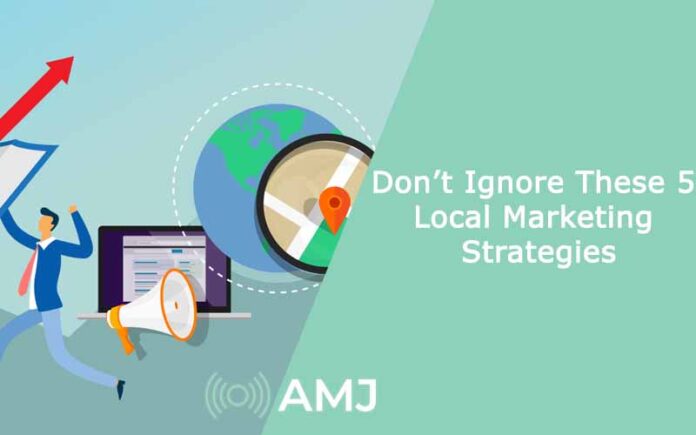Marketing is a major component of any local business. You need to let the people in your area know about your business and what it has to offer. If you don’t consistently market your brand, you may have a hard time bringing in new customers or retaining your current ones. With that in mind, below are five strategies you shouldn’t ignore when it comes to marketing your local business.
Contents [hide]
Search Engine Optimization
The best strategy to start with is search engine optimization (SEO). SEO is the practice of tweaking your business’s website so that it appears higher in search results. Search engines are one of the primary ways that people discover information these days, and you want your business to appear near the top when someone searches for terms related to your industry or services.
There’s a lot that goes into SEO, like conducting keyword research, learning the latest SEO trends, and crafting high-quality content. If you don’t have the time to learn SEO strategies alone, hiring a local SEO marketing service might be a good idea. Moving your website up a few spots in search results could be the difference between hundreds or even thousands of more visitors to your website each month, making SEO a worthwhile investment.
Online Business Listings
Another thing you can do online is ensure your business is listed on major review and listing sites. For example, you can create a listing on Google’s My Business, which would allow your business to appear above search results for users in your area. Other popular listing sites include Yelp, Angie’s List, and Bing Places for Business.
Some sites are better for certain industries than others, so explore each one to see if it makes sense for your niche. If there are businesses similar to yours on that listing site, it’s a good idea to create your own listing. Creating a business listing only takes a few minutes but can result in a ton of new customers.
Community Involvement
One advantage you have as a local business is that you can engage with your community. Since you want to bring in people who live nearby, it makes sense to connect with those people whenever you can. You can use community involvement to promote your business in a few ways. For one, you can host events related to your business. If you run a bakery, you could host some classes teaching people how to make a certain dessert, for example.
Another way to get involved with your community is through sponsorships. There are likely organizations in your area that could use some funding and will promote your brand in exchange. For instance, you could pay for soccer trophies for a local youth league, and they’d hang a banner with your business’s name at each game. Sponsorships are a great way to give back to your community and improve your business’s reputation.
Finally, you can consider forming strategic partnerships. A partnership is when you work with another local business to mutually benefit one another. For instance, your bookstore could provide a discount to customers of the coffee shop next door and vice versa. Look for nearby businesses that have a similar audience as you and see if there is a way you can work together.
Print Ads
Print ads are another major component of many local marketing strategies. A simple print ad in the right place could be more effective than online advertising. Print ads can take on many forms, like billboards, window signs, fliers, and bus stop signage. Think about the populated areas nearby and whether you could advertise in that area. Print ads are often a low-cost way to reach a local audience and can last a long time.
Social Media
Last but certainly not least, there’s social media. Social media is one of the most powerful tools available for local businesses. You can easily connect with people in your area through social media, sharing the latest news about your business or the promotions you’re running. People often turn to social media to learn more about a business, whether it’s your hours of operation, the services you offer, or reviews from previous customers.
If you don’t already have profiles on major social media sites like Facebook, Twitter, and Instagram, now is the time to get started. Once you create an account, look to connect with other businesses or people in your area. Then, give people a reason to follow your account by sharing useful information related to your business or industry. Social media can take some time to get rolling, but the long-term benefits are typically worth the effort.












![Index of Money Heist [Season 1, 2, 3 & 4 – All Episodes, Cast and Plot] Index of Money Heist](https://www.asiamediajournal.com/wp-content/uploads/2021/05/Index-of-Money-Heist-3-100x70.jpg)